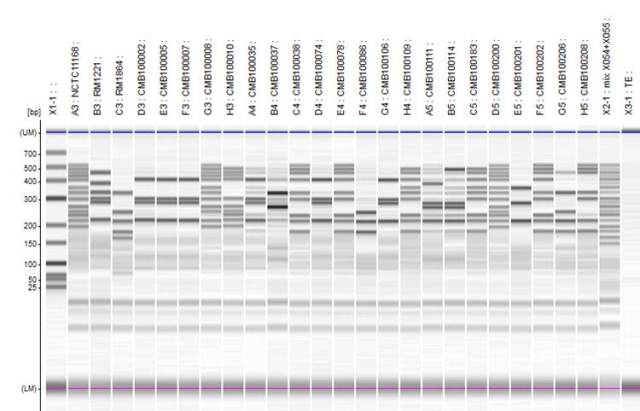Multiplex Ligation dependent Probe Amplification (MLPA) is a powerful molecular technique that allows up to 50 gene targets to be detected in a single PCR-type reaction. This multiplexing power has been applied to the detection of genes involved in human genetic diseases, genetically modified food crops and identification of bacteria.
We have applied this technique to the detection of genes thought to be involved in the survival and/or pathogenicity of foodborne bacterial pathogens. The variable carriage of these genes between isolates provides a binary typing system that is highly discriminative.
The MLPA assay takes less than six hours thus it is possible to subtype microorganisms within a single working day. This is significantly faster than pulsed field gel electrophoresis (PFGE) and also faster than most laboratories are able to undertake multilocus sequence typing (MLST).
MLPA was developed by MRC-Holland (www.mlpa.com(external link))

Last modified: